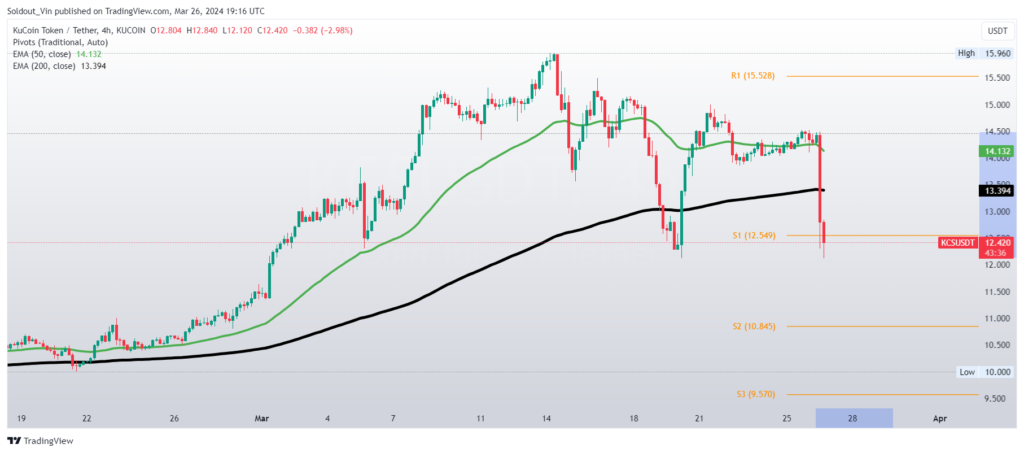The Department of Justice, in the United States has revealed charges against KuCoin, a cryptocurrency exchange, and its two founders, Chun Gan and Ke Tang.
The allegations describe a scheme involving running an unlicensed money-transmitting business and breaching the Bank Secrecy Act.
As per the DOJ, KuCoin and its founders intentionally bypassed U.S. Anti-money laundering regulations to expand their platform into one of the cryptocurrency exchanges.
The indictment claims that the exchange and its founders neglected to establish money laundering protocols enabling KuCoin to facilitate illegal money laundering activities and funding for terrorist purposes. The DOJ asserts that KuCoin handled more than $5 billion in transactions.
The value of Kucoin Shares (KCS) fell by 16% in less than 4 hours following the news.

Specifically, the indictment accuses KuCoin and its founders of collaborating to operate a money-transmitting business and conspiring to violate the Bank Secrecy Act by failing to uphold a money laundering program deliberately.
Both founders, Chun Gan and Ke Tang are currently on the run, with the U.S. Attorney’s Office underscoring the gravity of these charges by emphasizing that financial institutions operating in the U.S. Must adhere to laws aimed at preventing activities and illicit financing schemes.
The situation brings attention to the struggle, between the growing cryptocurrency sector and government regulators. The U.S. Authorities have been closely monitoring cryptocurrency platforms to ensure they adhere to rules concerning money laundering and terrorism financing.
The indictment of KuCoin serves as a stark reminder to other crypto exchanges that serving U.S. customers comes with the obligation to follow U.S. law.
The crypto community has reacted with a mix of concern and defiance, with some viewing the indictment as an overreach by U.S. authorities, while others see it as a necessary step to bring order and legitimacy to the crypto market.
The indictment of KuCoin could have significant implications for the future of cryptocurrency regulation and the industry’s relationship with governmental authorities.








